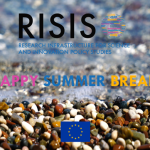The RISIS Research Seminars took place after the summer break online on 14th September from 12.30 to 14. The study illustrated by Sylke V. Schnepf, European Commission, Joint Research Centre (JRC), focused on investigating the factors that contribute to the inequality in the uptake of international student mobility. Notably, it takes a unique approach by exploring not only individual characteristics but also the characteristics of universities as potential drivers of unequal uptake. Kristina Hausschildt, German Center for Higher Education Research and Science Studies (DZHW),was involved as discussant.
The study benefits from rich data gathered through graduate surveys and administrative records, coupled with information from the European Tertiary Education Register (ETER) at the university level. Moreover, the study’s comparative analysis spans across four European countries.
The results of the study reveal that despite considering university characteristics, the socio-economic mobility gap remains significant. Nonetheless, universities themselves play a crucial role, particularly in terms of student compositions, encompassing socio-economic background and ability, which significantly influence unequal ISM uptake. As a consequence, intergovernmental policies should strive to distribute grants and mobility opportunities more equitably across all universities, irrespective of their student compositions. This approach aims to foster a more inclusive and accessible ISM experience for all students, regardless of their socio-economic backgrounds, thereby enhancing the positive impacts on career progression.






